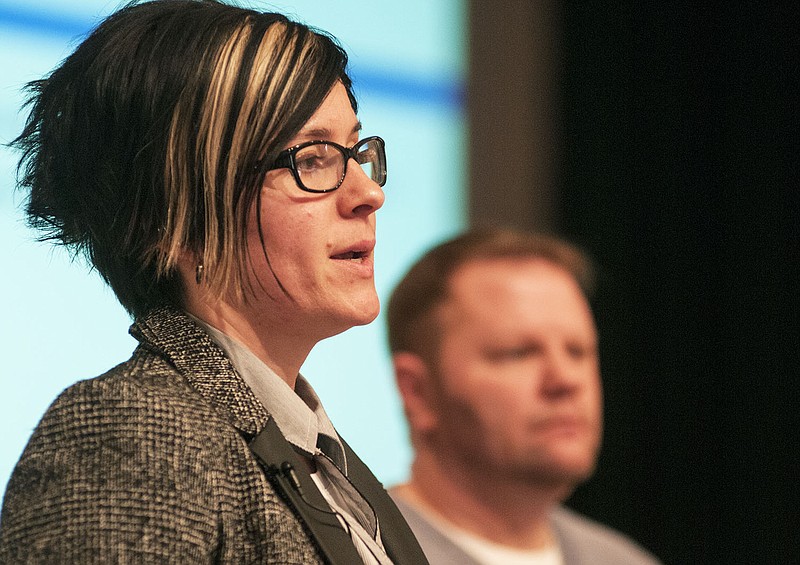Fulton State Hospital employees and members of the public gathered Tuesday at the Missouri School for the Deaf to learn more about issues facing the Lesbian, Gay, Bisexual and Transgender (LGBT) community.
The seminar, titled "Welcoming Lesbian, Gay, Bisexual and Transgender Peers in Our Community," was led by Shelly Farnan, a psychologist and owner of Cultivate Psychological Services, LLC and Joshua Castillo, a social worker and owner of The Center for Transition, LLC. Both have dealt with struggles of the LGBT community professionally and personally.
Together they presented information to help attendees have a self awareness about the LGBT community. They also helped attendees understand the term "gender disphoria" - when a person's sexual orientation and gender identity are not congruent.
Sexual orientation is a person's "bioclassification" and is based on a person's DNA. Gender identity is how a person classifies him or herself based on social norms. When people are dealing with gender disphoria and cannot be who they are, they can suffer, the presenters explained.
"(Gender disphoria) is a powerful emotion that often leads to depression, anxiety and even suicide," Farnan said.
Castillo, who is a transgender man, gave perspectives on transgender topics.
He said only 13 percent of transgender people report assault - sexual and physical - because of fear of being judged or receiving little to no help from police.
"I've had a gun pointed at me and I didn't report it to the police because I didn't want to deal with the police," Castillo said.
One of five transgender people are approved for housing, including young people.
"That's a lot of kids on the street because of their identity," Castillo said.
Farnan, who works with families, said coming out for a transgender or gay person is sometimes the end of his or her journey, but it's often the beginning of a family's journey to understand their loved one.
When a transgender or gay person comes out to their families, four reactions can occur:
•Distancing from parents and/or family.
•Homelessness.
•Being disowned.
•Abuse.
She listed four ways parents and families show rejection of an LGBT child:
•Not allowing their child to have any LGBT friends.
•Keeping the child away from resources that would allow the child to learn more about who he or she is.
•Preventing the child from participating in a support group.
•Excluding the child from family events and activities.
Farnan said the best thing people can do for someone who comes out is to listen.
"Hear their story," she said. "What's the harm in listening?"
Acceptance and understanding is also key at school, Farnan said. She said 84.6 percent of LGBT students have experienced verbal harassment from their peers and 6.3 percent of harassment comes from faculty and staff.
"What do kids do when they don't feel safe?" Farnan said. "They don't go to school."
She said not tolerating anti-LGBT language and bully prevention are ways schools can help LGBT students feel safe, as well as sponsoring Gay-Straight Alliance clubs and inclusive activities.

